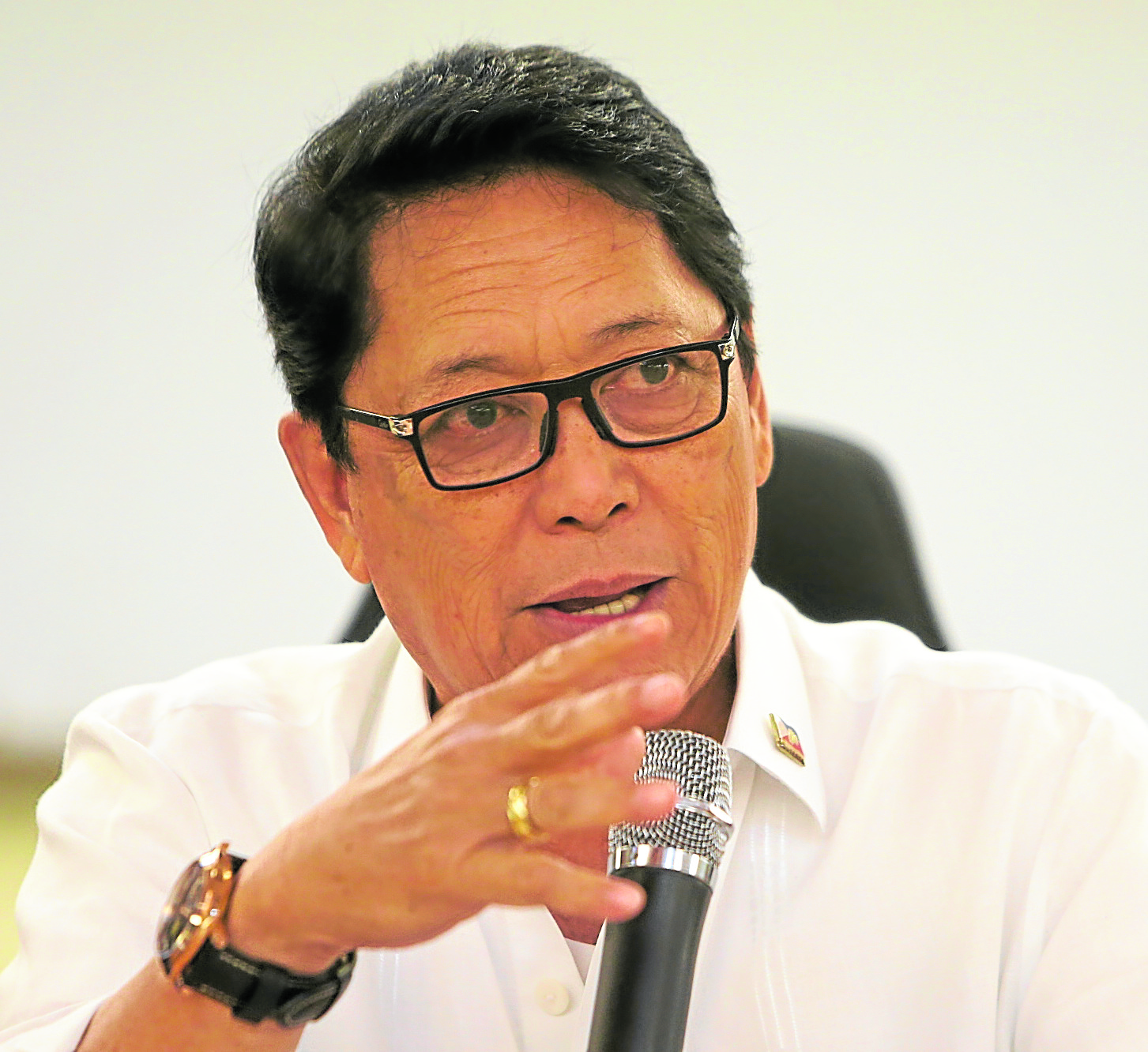
Labor Secretary Silvestre Bello III—INQUIRER FILE PHOTO
MANILA, Philippines — Labor Secretary Silvestre Bello III on Thursday said the government was considering providing soft loans to businesses still struggling due to the COVID-19 pandemic to help them give the mandatory 13th-month pay to their workers.
Speaking at the Laging Handa briefing, Bello said he had talked with Employers Confederation of the Philippines president Sergio Ortiz-Luis Jr. about the loan proposal and they later discussed this with Secretary Ramon Lopez of the Department of Trade and Industry (DTI).
“I can really feel the agony of the employers,” he said.
“You can’t deny that their businesses are really affected, especially the micro, small and medium enterprises (MSMEs), which are really in dire straits. The problem is 13th-month pay is not only legal but also a statutory obligation that they must pay,” Bello said.
The secretary did not disclose details of the proposal but he said Ortiz-Luis’ reaction was “very positive.”
Hopefully low-interest
Ortiz-Luis told the Inquirer that he and Bello had talked about the proposal on the phone. He said his group asked that the conditions for the loan be as simple as possible and with low interest.
“What we talked about was there was a facility in the DTI —the [Small Business] Corp. —that could be repurposed for the loan,” Ortiz-Luis said.
“The simpler, the better. That’s our request,” he said.
Lopez on Tuesday said at least P200 million for the soft loans could be taken from the P8-billion fund of the Bayanihan 2 law. It is unclear, however, whether there are funds still available or that they could be used for this purpose as the law had expired in June this year.
Mandatory benefit
Bello said Finance Secretary Carlos Dominguez III would also be involved in the discussions to determine the loan facilities. Last year, the Small Business Corp., Land Bank of the Philippines, and Development Bank of the Philippines provided low-interest and flexible-term loans to businesses affected by the pandemic, especially MSMEs and tourism establishments.
These loans were allowed to be used for operational expenses, including wages.
The 13th-month pay, instituted in 1975 through Presidential Decree No. 851, is a mandatory benefit given to rank-and-file employees in the private sector who have worked for at least one month during the calendar year.
300K returning to work
It must be released no later than December 24 of every year. However, companies may give it in two installments, the second tranche in the following year before the opening of the regular school year. A 13th-month pay that does not exceed P90,000 is tax-free.
In a previous statement, Lopez said that reopening the economy would be a more sustainable way to help businesses.
He told reporters in a DTI Viber group on Thursday that the easing of the quarantine regulations in Metro Manila would allow almost 300,000 workers to go back to their jobs with the reopening of most of the remaining economic sectors that had been closed, particularly the service sector.
He based this estimated figure on the 1.8 million workers who were displaced when the country was placed under enhanced community quarantine from March to April this year, with Metro Manila accounting for 1 million of them.
The Duterte administration adopted a new COVID-19 alert level system for Metro Manila starting in the second half of September. Under the five-level alert system, 1 is the most lenient and 5 is the most restrictive.
Metro Manila will be under alert level 3 from October 16-31. Leaders of several business groups reacted positively to the latest quarantine regulations for Metro Manila.
Looking forward to ‘2’
Rizalina Mantaring, co-chair of the national issues committee of the Management Association of the Philippines, said the move to lower the alert was “very welcome” and she hoped that the government would soon lower it to alert level 2.
“This will help keep more businesses afloat until we can fully reopen, and also allow them to provide more jobs,” she said.
Coco Alcuaz, executive director of the Makati Business Club, said the business sector was encouraging the government to ease the regulations further in the coming weeks.
“This will be a boon for airlines, hotels, even restaurants and retail in the lead-up for Christmas so these businesses can end a challenging two years on an upbeat note,” he said.
Ebb Hinchliffe, executive director of the American Chamber of Commerce of the Philippines, said his group also wanted Metro Manila to shift to an even lower alert level “in the not too distant future” as more fully vaccinated people will result in fewer COVID-19 cases.
In a recent television interview, Benedicto Yujuico, president of the Philippine Chamber of Commerce and Industry, asked why not remove all restrictions in cases where establishments had fully vaccinated employees catering to fully vaccinated clients.
Presidential adviser for entrepreneurship Joey Concepcion said business groups were pushing for alert level 1 to allow indoor businesses to operate at 70-percent capacity in the last two months of the year when consumer spending was expected to ramp up ahead of Christmas.